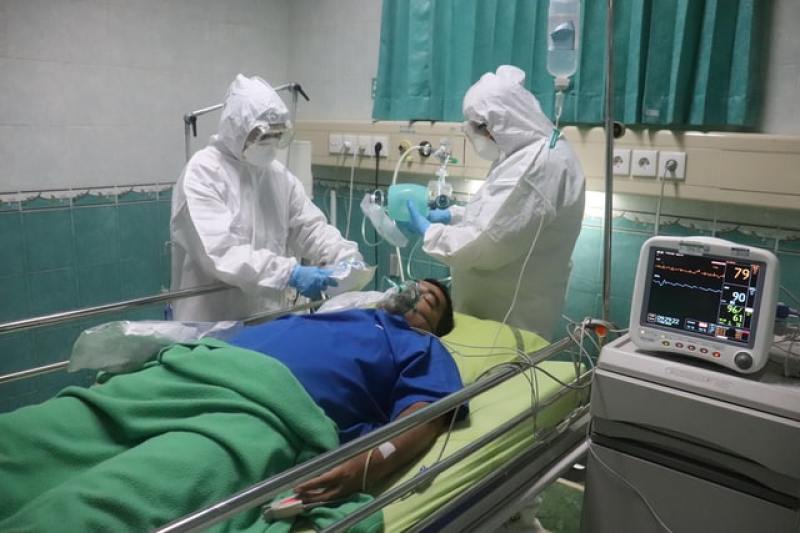
Britain's socialized health care system to treat COVID-19 patients based on 'value' to society or via 'lottery' selection, according to a report last Sunday.
As per Breitbart, Britain's socialized health care system will provide treatment to coronavirus patients based on "an individual's potential to contribute to maintenance of critical infrastructure throughout the pandemic," on people "who participate on research to improve treatments or vaccines during the pandemic," on patients "deemed to have a similar chance of survival and level of contribution to society."
Furthermore, Breitbart reported that in the event that patients have a similar chance of survival and recovery, as well as similar level of contribution to society, treatment will be given based on "a random allocation, such as a lottery, may be used."
Breitbart was actually referring to an article on emergency triad published in the Journal for Medical Ethics of the BMJ Publishing Group Ltd & Institute of Medical Ethics entitled, "Who gets the ventilator? Important legal rights in a pandemic" written by members of the University of Cambridge U.K. Faculty of Law.
The article actually discussed the current controversy involving patient rights during the pandemic in the face of limited government and medical resources, particularly zoning in U.K. law on the matter.
"The U.K. government controversially abandoned its plans to create a national policy for triage decisions during the COVID-19 pandemic. As a result, at present, the only central guidance comes from the 'COVID-19 Rapid Guideline' issued by the National Institute for Health and Care Excellence (NICE), which recommends triaging admission to the ICU based on frailty assessments, but provides little concrete guidance on how to allocate or re-allocate ventilators once a patient is in the ICU," the authors highlighted.
"Thus, if there is a ventilator shortage, these decisions will need to be made at the local or regional level by doctors, hospitals and the National Health Service (NHS) Clinical Commissioning Groups (CCGs) that are responsible for health service management and procurement. This could lead to 'postcode' lotteries where patients have different rights to ventilators in different hospitals, not to mention insufficient clarity for patients about their rights to life-saving treatment," the authors raised.
The authors--Kathleen Liddell, Jeffrey M Skopek, Stephanie Palmer, Stevie Martin, Jennifer Anderson, Andrew Sagar--cited the British Medical Association's suggestions regarding the withholding of treatment be based "on a patient's relative 'capacity to benefit quickly, which could result in the denial of treatment to patients with poorer prognoses-patients who are also more likely to be elderly, disabled or chronically ill."
Similarly, the BMA suggests that in withdrawing of treatment that "an individual who is stable or even improving but whose objective assessment indicates a worse prognosis than another patient who requires the same resource'" unless such patient belongs to " 'essential services', including healthcare workers, who it suggests might be given priority if so authorized by the government," the authors said.
"Saving as many lives as possible is a worthy goal, but this principle can occlude the consideration of patients' legal rights-rights that are not suspended merely because a crisis has occurred. So even if the principle is used as the primary touchstone, the goal should be: 'save the most lives possible without violating the rights of patients.' Of course, this should go without saying, but many legally enforceable rights have been overlooked in the ethically focused guidelines that have been produced thus far," the authors stressed.
The article identified unappreciated complexities in so far as the allocation of resources to patients are concerned in terms of its "clinical implications, evidentiary weaknesses, ethical controversy, judgements, and organizational complexity."
It also cited the relevant areas of law that countries not only in the U.K. should look into to safeguard patient rights. In particular, these are: criminal law, human rights law, civil law, public and administrative law, professional regulations laws on decision-making for incapacitated adults, and derogations from the current law. The authors provided 10 recommendations to address these various legal concerns.
"Given the numerous and complex areas of law that are applicable to a decision to withhold or withdraw ventilation, it is crucial that debates about ventilator allocation policies engage directly with these legal issues," the article said.
"Ethical guidance from clinicians and ethicists cannot be translated into operational guidance without proper consideration of the myriad legal duties of the various individuals and institutions involved. Many of the policies that have been proposed could result in unlawful behaviour by hospitals and doctors and unlawful loss of patient life," the article said.































